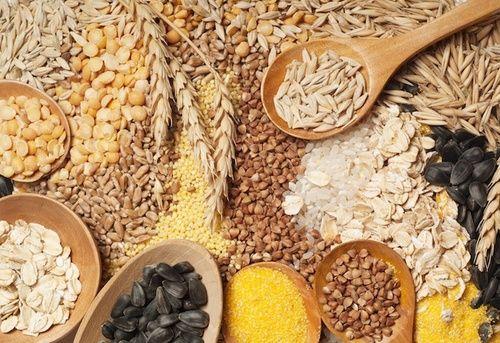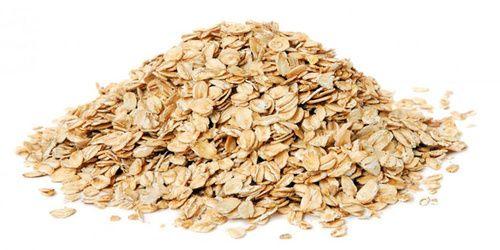, Naturopath
- natural fiber food supplements they are useful not only in case of constipation and to regulate bowel function, but also for diabetes and the treatment of high cholesterol. Let's find out better.
> Natural fiber supplements
Cereals among the foods rich in fiber

What are dietary fibers
Le dietary fibers they are vegetable polysaccharides that are not available, since the human body is unable to digest them, much less absorb them. From a caloric point of view they do not have a particular incidence but they are extremely important for human health.
The fibers, in fact, come partially or completely fermented by bacterial flora of the colon. When taken alone (in the form of supplements or in the form of bars / flakes) dietary fibers are fermented in greater proportion than when they are consumed through foods, such as fruits and vegetables.
They are divided into two categories:
- Insoluble fibers (they do not dissolve in water) are cellulose, hemicellulose, lignin and have the ability to incorporate a considerable amount of water and therefore increase the volume and weight of the faeces (accelerate intestinal motility and prevent or treat constipation)
- Soluble fibers (pectins, gums, mucilages) with the ingested water form a gelatin that has a satiating power and reduces the intestinal absorption of digestive products.
The fibers therefore not only play a fundamental role in the treatment of constipation but are also indicated in slimming diets, in the treatment of diabetes (they reduce the absorption of sugars) and in the reduction of blood cholesterol and triglycerides (they reduce their absorption).
The recommended daily amount of fiber is 20-30 grams of fiber, favoring the fibers naturally contained in food. Do not exceed the doses, as an excessive consumption of fiber can impair the absorption of nutrients and drugs.
Fiber food supplements
The highest-fiber foods are:
- Fruits (especially apples, pears, bananas, kiwis)
- Dried fruit and oil seeds
- Whole grains, especially grains (such as brown rice, barley, quinoa, millet, oats)
- Cereal flakes (oat bran, wheat bran)
- Yogurt naturale, kefir
- Raw and cooked vegetables, especially fibrous green leafy vegetables such as chard, chicory, artichokes, cabbage)
- Legumes
You can learn more about the properties of bran, a natural dietary fiber supplement

Fiber supplements
- Bran: it is the casing that covers the cereals. The refining of the flours involves their removal; better therefore to take directly the whole grains that naturally contain it; alternatively in the form of flakes to add to yoghurt, soups.
- Guar : it is an annual herbaceous plant from which the famous guar gum (i.e. a water-soluble, white powder) is obtained. It absorbs a lot of water, with which it forms particularly viscous solutions, therefore it is used as a thickener, gelling agent (ice cream, sauces, industrial drinks; on the label it is indicated as E412).
- Psyllium seeds (Plantago Psyllium) rich in mucilage with emollient, protective and anti-inflammatory properties. The best known effect of psyllium, the laxative-mechanical effect, therefore depends on its ability to recall liquids in the lumen of the intestine, which by swelling and increasing the intestinal contents stimulates peristalsis and evacuation.
- Agar: is a polysaccharide obtained from red algae. In water it forms a jelly very rich in trace elements and with an absolutely pleasant taste. Has a thickening power and preservative in the food industry (puddings, sauces, ice creams) and is also used in the preparation of (mechanical) laxatives.
- Glucomannan: it is extracted from a tuber called Amorphophallus konjac. Ideal for diets aimed at controlling or reducing body weight. This fiber has in fact the ability to attract a lot of water, increasing its volume up to 60-100 times and giving rise to a soft gelatinous mass (reduces the sense of hunger and reduces the absorption of fats and sugars, which are trapped in the mass soft and viscous that forms in the intestine and that is eliminated through evacuation).
READ MORE
What are they and when to use constipation supplements
Other articles on fibers:
> Dietary fibers: if you know them, you can use them
> Tips for better digesting fiber
> Is eating whole fiber good for you?


























